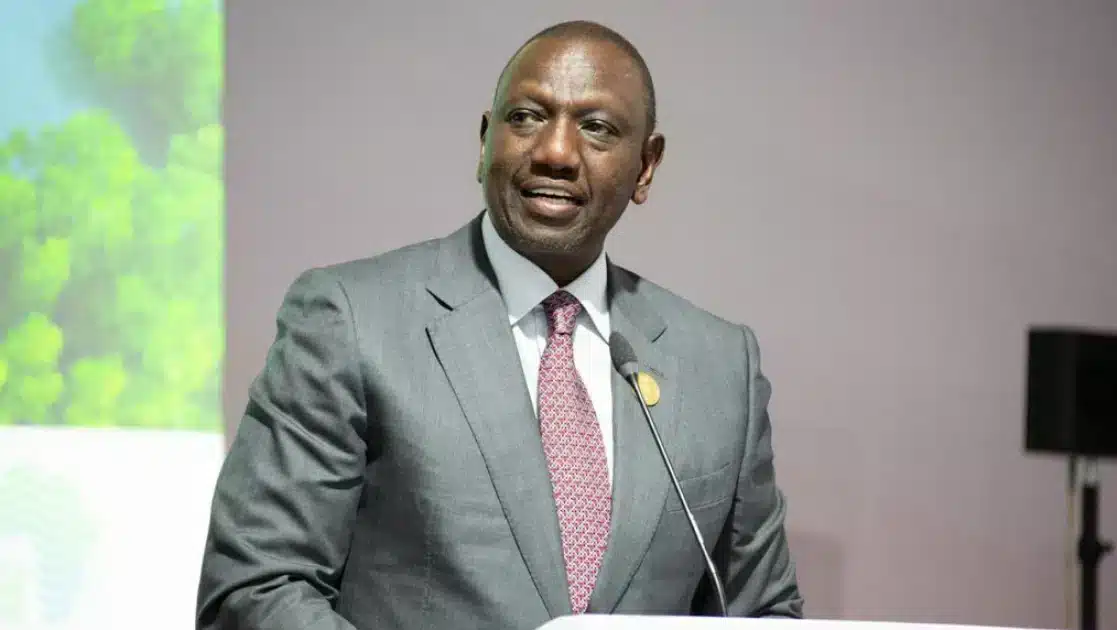Deep within the rugged landscape of Kasigau, a sprawling wilderness inhabited by elephants, a team equipped with clipboards and measuring tapes is diligently examining an unassuming tree. Despite its gnarled and leafless appearance, this tree holds significant value: it serves as a carbon store. The team’s mission is to precisely quantify the amount of carbon locked within this semi-arid, 200,000-hectare woodland in southern Kenya.
“We want to make absolutely sure we account for every single tree,” asserts Geoffrey Mwangi, the lead scientist at the US-based company Wildlife Works, as the “carbon samplers” gather data from another thorny specimen.
This data translates into carbon credits, and these credits have become a valuable commodity, fetching millions of dollars when sold to corporate giants like Netflix and Shell. These companies purchase these credits to offset their greenhouse gas emissions, enhancing their environmental credentials.
With climate change intensifying and mounting pressure on companies and nations to address their environmental impact, the demand for carbon credits has surged, despite facing scrutiny over their effectiveness.
Cash-strapped African countries are now seeking a larger share of the $2-billion carbon credits market, which is projected to grow five-fold by 2030. Africa is home to the planet’s second-largest rainforest and extensive carbon-absorbing ecosystems, such as mangroves and peatlands, yet it only produces 11 percent of the world’s carbon offsets.
Kenyan President William Ruto, who is hosting a climate summit in Nairobi, expressed the view that Africa’s carbon sinks represent an “unparalleled economic goldmine” with the potential to absorb millions of tons of CO2 annually, translating into billions of dollars.
A single carbon credit represents one tonne of carbon dioxide removed or reduced from the atmosphere. Companies acquire these credits through activities such as renewable energy projects, tree planting initiatives, or forest protection programs.
Carbon markets operate with minimal regulation, and accusations have arisen that certain carbon offsets, particularly those tied to forests, yield limited environmental benefits or exploit local communities, leading to a drop in prices.
Kenya already leads Africa in generating carbon offsets and envisions a substantially larger domestic industry capable of creating jobs and driving economic growth, despite the market’s uncertainties.
“We have massive interest. We currently hold 25 percent of the African carbon credits market in Kenya, and we aim to expand this,” says Ali Mohamed, the president’s special envoy for climate change.
In Kasigau, Wildlife Works runs a flagship carbon credit project, compensating landowners and communities for preserving the forest. Revenue from the project has supported approximately 400 jobs and funded essential infrastructure, including water, education, and healthcare, in an underserved area of Kenya.
Wildlife Works founder Mike Korchinsky affirms that over half of the revenue goes to these communities. The protected forests were previously cleared for firewood and charcoal, leading to the degradation of a vital carbon sink and critical wildlife habitat. Preventing deforestation helps achieve climate goals by retaining carbon in the soil and trees, preventing its release into the atmosphere.
The Kasigau Corridor REDD+ Project was the world’s first to generate certified credits in this manner, with independent verification conducted nine times since 2011, preventing roughly 22 million tonnes of CO2 emissions.
While Kenya emits approximately 70 million tonnes of CO2 annually, projections suggest that Africa could generate 300 million carbon credits annually by 2030, a 19-fold increase from current levels. For Kenya, this would equate to over 600,000 jobs and $600 million in annual revenue.
However, these projections rely on carbon prices significantly higher than current levels and a substantial increase in financing. Carbon markets are grappling with trust and integrity issues in an environment characterized by volatility.
Ahead of the Africa Climate Summit in Nairobi, over 500 civil society organizations called on President Ruto to steer the conference away from carbon markets and “false solutions” driven by Western interests. They argue that these approaches will allow wealthy nations and large corporations to continue polluting while undermining Africa’s interests.
Joseph Nganga, Ruto’s appointee to lead the summit, contends that carbon markets should act as a means of ensuring accountability rather than an excuse for emissions. He believes that the cost should be borne by wealthy polluting nations.
Countries are moving to regulate the carbon credit sector. Zimbabwe, for instance, announced plans to appropriate half of all revenue generated from carbon credits on its land, sending ripples through the markets. Kenya is also finalizing its own legislation to ensure transparency and a fair share for communities without discouraging investors.

